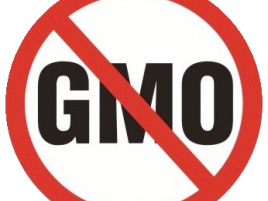US Position Could Pose Problems For GM-Free Labeling
By Caroline Scott-Thomas | Apr 29, 2010

The Codex Committee on Food Labeling (CCFL) is due to meet in Quebec City from May 3-7, and in a draft document, it proposes to allow countries to adopt different positions on the labeling of genetically modified (GM) foods and food ingredients, consistent with current guidance.
But the United States’ position, drafted by the Food and Drug Administration (FDA) and the Department of Agriculture (USDA), opposes this, stating that Codex should not “suggest or imply that GM/GE foods are in any way different from other foods” by allowing countries the option of mandatory labeling. The position is due to be presented at the CCFL meeting next month.
The Codex Alimentarius Committee is a United Nations organization that sets food safety and labeling standards, which are those used in settling World Trade Organization disputes.
In a letter to Michael Taylor, the deputy commissioner for food at the FDA, and Kathleen Merrigan, the deputy secretary of agriculture at the USDA, the organizations said there are “serious difficulties” with the draft US position.
The letter’s signatories include members of Consumers Union, the Organic Trade Association, the Union of Concerned Scientists, and the Center for Food Safety, among others.
“We are concerned that the current US position could potentially create significant problems for food producers in the US who want to indicate that their products contain no GE ingredients, including on organic food, where genetic engineering is a prohibited method,” the letter states.
In particular, the US position paper argues that allowing mandatory labeling of GM/GE food ingredients in any country would be “false, misleading or deceptive” because it would imply that they are different from other ingredients.
The letter said: “We urge the US not to allow trade goals to interfere with or distort judgments made on sound science and existing policy. The US should not try to solve the problem of consumer rejection of GM/GE foods in other countries by trying to force bodies like Codex to adopt the view that there are no differences between GM/GE foods and other foods, something which is contrary to scientific fact, USDA organic rules, and existing FDA policy allowing voluntary labeling.”
They also argued that it is inconsistent to oppose mandatory labeling as misleading, even though the US allows voluntary labeling, which it does not consider to be misleading.















